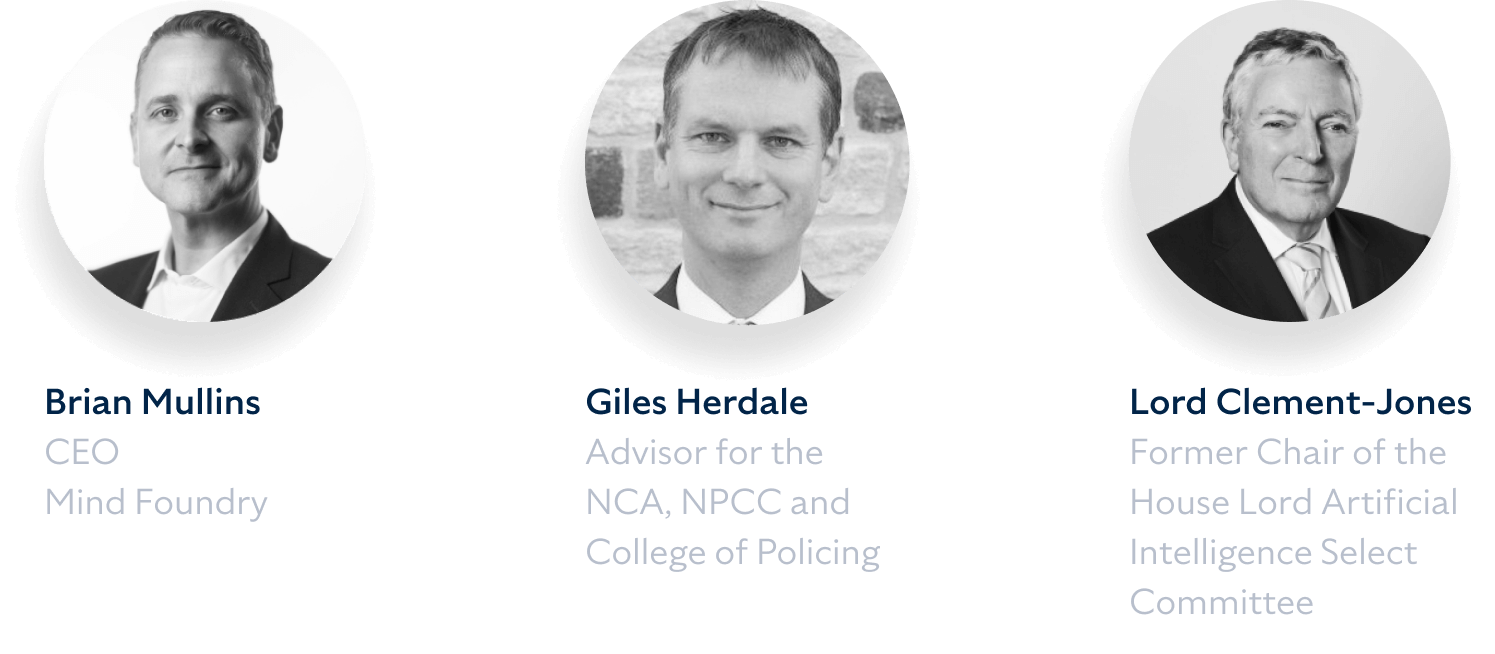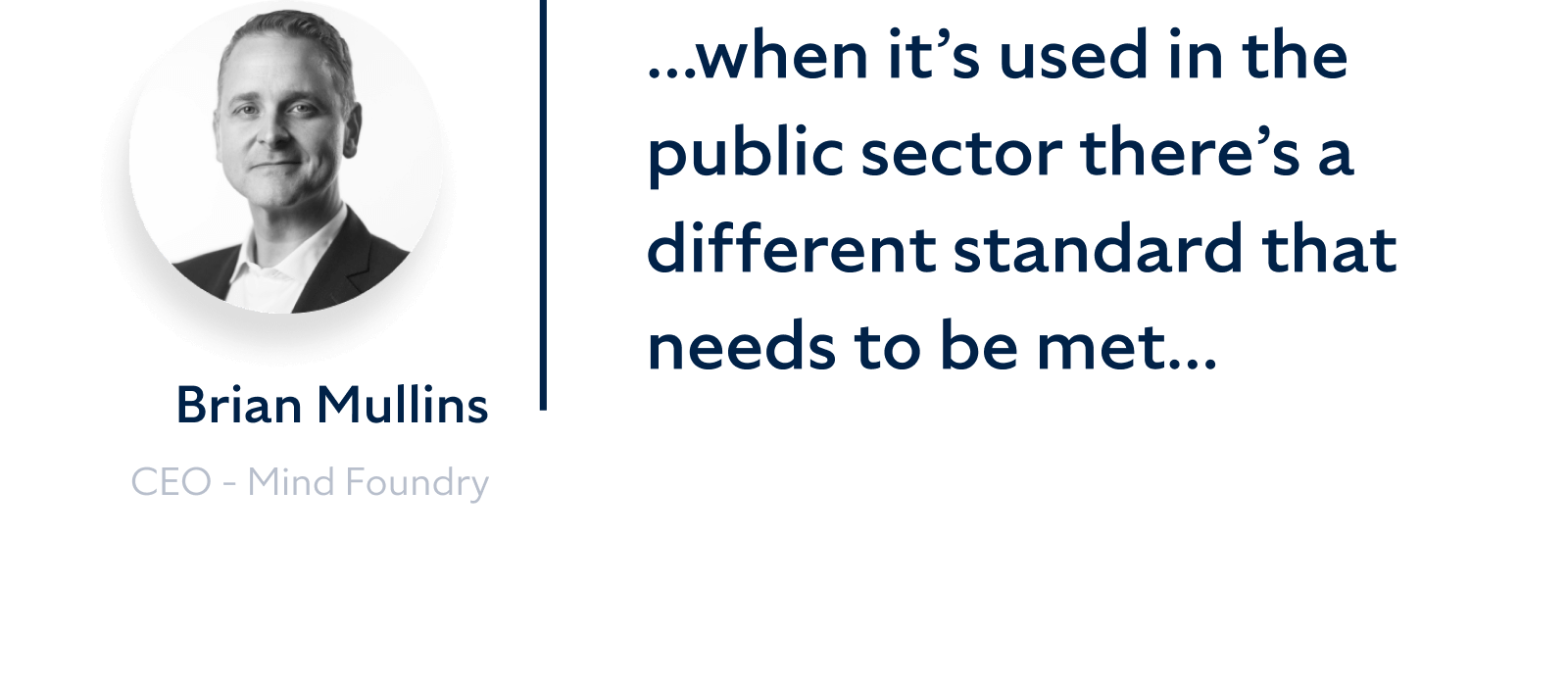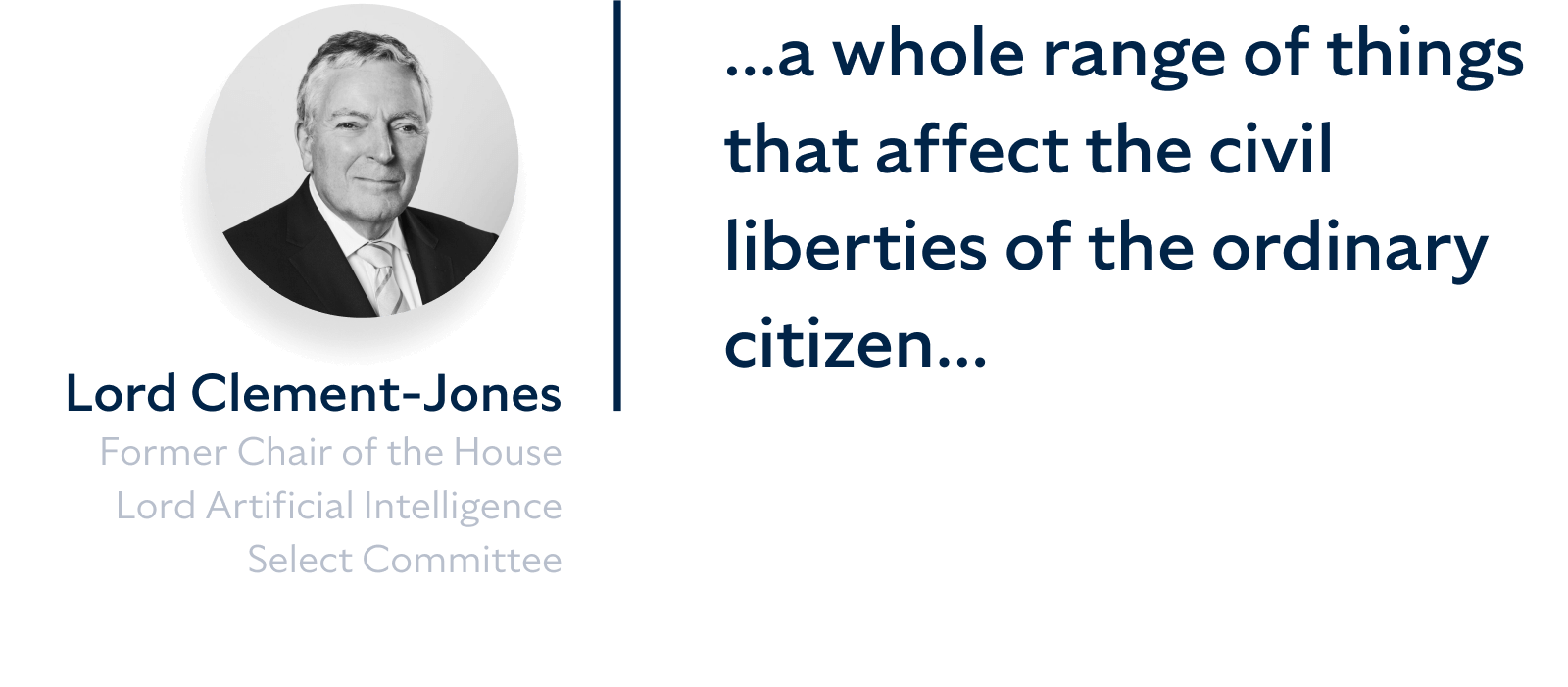AI-enabled Acoustic Intelligence for Anti-Submarine Warfare
From detecting hidden threats to defending critical underwater infrastructure, Anti-Submarine Warfare (ASW) is a cornerstone of national security. AI...

Mind Foundry hosted 'Defining Ambitions: The Future of AI in Public Sector', an invaluable virtual learning exchange for the public sector. Delivered in partnership with GovNewsDirect, the session's objective was to explore the possibilities for AI innovation within public services. It is fair to say that many organisations are only just beginning to use AI and machine learning; although growing, the number of organisations that rely on it as a core part of their operations is still relatively small, but those that do are drastically outperforming their peers. So, what does the future of AI hold in public sector organisations?

The webinar follows the research study produced with GovNewsDirect, which collated the responses of more than 300 organisations to analyse how AI is being incorporated into business strategies to improve internal and external public services. We sought to understand how well AI is being utilised and maximised within the public sector space – what’s working, what isn’t and why. Results showed a notable lack of understanding and training around AI within public sector teams – which is perhaps expected but reflects the vast number of opportunities being missed. This is the context of where the webinar discussion began.
Joined by a panel of AI experts
We were delighted to welcome an expert panel of speakers, each bringing their own unique and fascinating experience of working at the forefront of AI. Spearheaded by GovNewsDirect’s Public Sector Director, Mark Blanchard, guest panellists included:

Key topics we explore and investigate:
KNOWLEDGE – is the depth of knowledge of AI and automation in public sector detrimental to progress?
AMBITION – what role does AI play in the future of innovation, efficiency, and greater decision-making in public services?
IMPACT – how are AI tools already being utilised in public sector? Are these processes ethical? Are there any pain points?
BENEFITS – what can public sector organisations do to implement AI responsibly?
Listen in to engaging conversation
Brian Mullins, CEO at Mind Foundry: “When you look at the power machine learning has to understand data and look for opportunities, what sets it apart from other technologies is how quickly it can do what it does. It scales decision making. If you are to improve something with those decisions then you’ll improve them at scale very quickly, which is amazing. But if you make a mistake, and you propagate that mistake just as quickly, it can have extremely detrimental effects. That’s why the issue of explainability is so important. I’ll go one step further and say when it’s used in the public sector there’s a different standard that needs to be met.”
 Lord Clement-Jones, former chair of the House of Lords Artificial Intelligence Select Committee and Co-chair of the All-Party Parliamentary Group on Artificial Intelligence: “The use of algorithmic decision making in the public sector has a particular set of issues surrounding it because of the importance of the decisions and predictions that are made. We’re talking about the civil and criminal justice system, we’re talking about policing, we’re talking about social security decisions, housing benefit decisions, probation decisions - a whole range of things that affect the civil liberties of the ordinary citizen. I am really keen on the transparency and explainability agenda, but I am determined as we use this more in the public sector that there is a public register set up, that there is compulsory risk assessment, that there is a perceived regulator within the public sector.”
Lord Clement-Jones, former chair of the House of Lords Artificial Intelligence Select Committee and Co-chair of the All-Party Parliamentary Group on Artificial Intelligence: “The use of algorithmic decision making in the public sector has a particular set of issues surrounding it because of the importance of the decisions and predictions that are made. We’re talking about the civil and criminal justice system, we’re talking about policing, we’re talking about social security decisions, housing benefit decisions, probation decisions - a whole range of things that affect the civil liberties of the ordinary citizen. I am really keen on the transparency and explainability agenda, but I am determined as we use this more in the public sector that there is a public register set up, that there is compulsory risk assessment, that there is a perceived regulator within the public sector.”

Giles Herdale, Advisor for the NCA, NPCC and College of Policing: “In my experience in the policing and justice sector, in my experience explainable AI is definitely more of an aspiration than a reality at this point in time. That said, the use of advance analytics is developing rapidly in the sector but from quite a low level of maturity. And so, the important issues to do with that are how to build the audit and governance into that process. Ultimately policing and justice is around high stakes decision making, which has definite and long-lasting effects on individuals whether those be offenders, suspects or victims and witnesses. It is vital that policing can account for decisions that are being made and has to do so both legally through the courts and justice system, but also importantly to the public, because the duty of policing in the UK is by consent. Policing has a duty of transparency and accountability in order to explain what it’s doing and why it’s doing it and be able to justify those decisions against a legal framework.”

From detecting hidden threats to defending critical underwater infrastructure, Anti-Submarine Warfare (ASW) is a cornerstone of national security. AI...

The UK-USA Technology Prosperity Deal sees overseas organisations pledging £31 billion of investment into UK AI infrastructure. As AI investment...

Industrial AI is increasingly coming to the fore in physical industries, but achieving measurable real-world impact requires careful consideration...